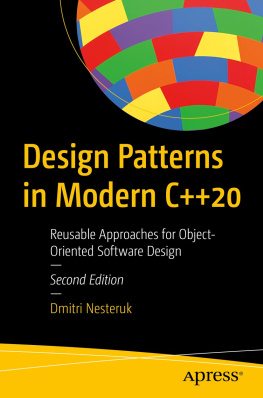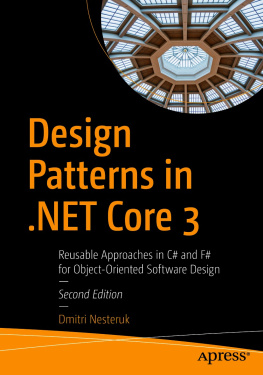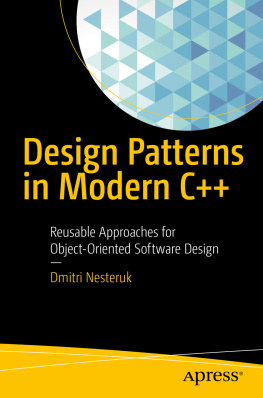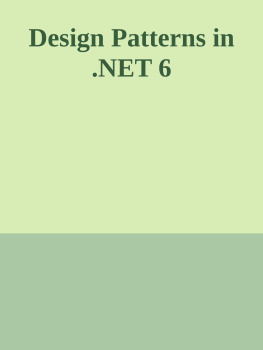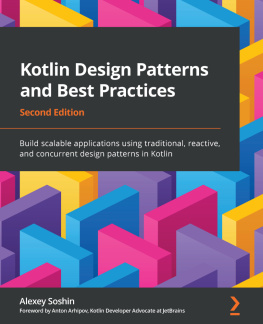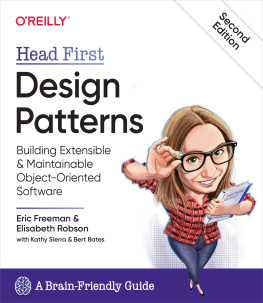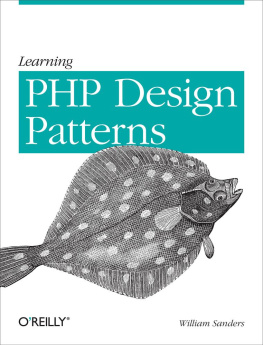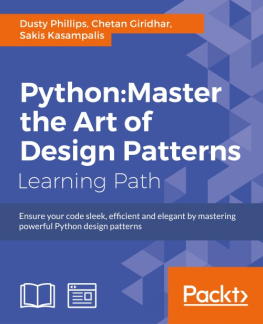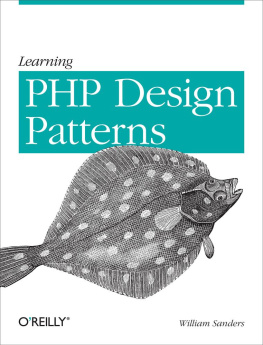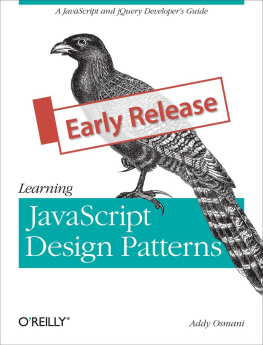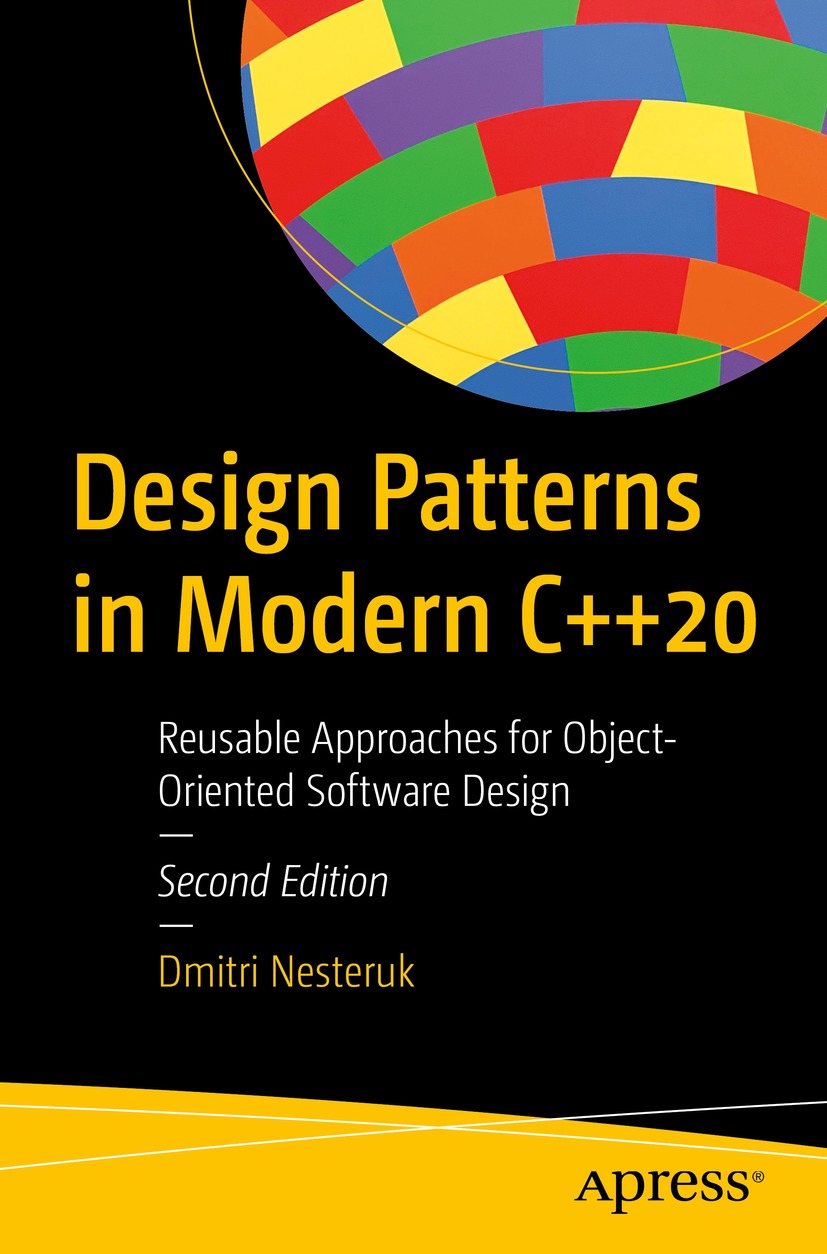Dmitri Nesteruk - Design Patterns in Modern C++20: Reusable Approaches for Object-Oriented Software Design
Here you can read online Dmitri Nesteruk - Design Patterns in Modern C++20: Reusable Approaches for Object-Oriented Software Design full text of the book (entire story) in english for free. Download pdf and epub, get meaning, cover and reviews about this ebook. year: 2021, publisher: Apress, genre: Computer. Description of the work, (preface) as well as reviews are available. Best literature library LitArk.com created for fans of good reading and offers a wide selection of genres:
Romance novel
Science fiction
Adventure
Detective
Science
History
Home and family
Prose
Art
Politics
Computer
Non-fiction
Religion
Business
Children
Humor
Choose a favorite category and find really read worthwhile books. Enjoy immersion in the world of imagination, feel the emotions of the characters or learn something new for yourself, make an fascinating discovery.
- Book:Design Patterns in Modern C++20: Reusable Approaches for Object-Oriented Software Design
- Author:
- Publisher:Apress
- Genre:
- Year:2021
- Rating:5 / 5
- Favourites:Add to favourites
- Your mark:
Design Patterns in Modern C++20: Reusable Approaches for Object-Oriented Software Design: summary, description and annotation
We offer to read an annotation, description, summary or preface (depends on what the author of the book "Design Patterns in Modern C++20: Reusable Approaches for Object-Oriented Software Design" wrote himself). If you haven't found the necessary information about the book — write in the comments, we will try to find it.
Apply the latest editions of the C++ standard to the implementation of design patterns. As well as covering traditional design patterns, this book fleshes out new design patterns and approaches that will be useful to modern C++ developers. Author Dmitri Nesteruk presents concepts as a fun investigation of how problems can be solved in different ways, along the way using varying degrees of technical sophistication and explaining different sorts of trade-offs.
Design Patterns in Modern C++20, Second Edition also provides a technology demo for modern C++, showcasing how some of its latest features (e.g., coroutines, modules and more) make difficult problems a lot easier to solve. The examples in this book are all suitable for putting into production, with only a few simplifications made in order to aid readability.
What You Will Learn
- Use creational patterns such as builder, factories, prototype and singleton
- Implement structural patterns such as adapter, bridge, decorator, facade and more
- Work with the behavioral patterns such as chain of responsibility, command, iterator, mediator and more
- Apply functional design patterns such as the Maybe Monad
Who This Book Is For
This book is for both beginner and experienced C++ developers.
Dmitri Nesteruk: author's other books
Who wrote Design Patterns in Modern C++20: Reusable Approaches for Object-Oriented Software Design? Find out the surname, the name of the author of the book and a list of all author's works by series.

